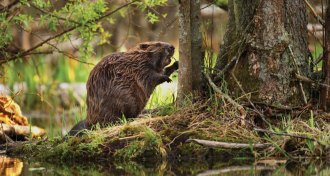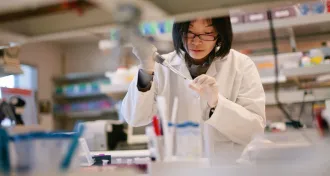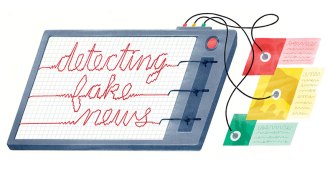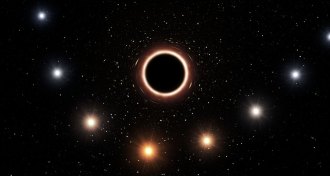All Stories
-
 Animals
AnimalsGot an environmental problem? Beavers could be the solution
A new book shows how important beavers have been in the past — and how they could improve the landscape of the future.
-
 Science & Society
Science & SocietyWomen and men get research grants at equal rates — if women apply in the first place
When women get research funding, they’ll stay funded as long as their male counterparts. But getting to the top of that heap is a challenge.
-
 Genetics
GeneticsMost Americans think it’s OK to tweak a baby’s genes to prevent disease
Americans generally favor tweaking a baby’s genes to reduce the chance of getting a disease, but think boosting intelligence is a step too far.
-
 Science & Society
Science & SocietyPeople are bad at spotting fake news. Can computer programs do better?
Fake news–finding algorithms could someday make up the front lines of online fact checking.
-
 Particle Physics
Particle PhysicsA new quasiparticle lurks in semiconductors
Strange entities called collexons hint at undiscovered physics among interacting subatomic particles in a semiconductor.
-
 Physics
PhysicsA star orbiting a black hole shows Einstein got gravity right — again
For the first time, general relativity has been confirmed in the region near a supermassive black hole.
-
 Genetics
GeneticsHere’s why wounds heal faster in the mouth than in other skin
Wounds in the mouth heal speedily thanks to some master regulators of immune reactions.
-
 Planetary Science
Planetary ScienceMars (probably) has a lake of liquid water
A 15-year-old Mars orbiter has spotted signs of a salty lake beneath the Red Planet’s south polar ice sheets.
-
 Health & Medicine
Health & MedicineLowering blood pressure may help the brain
Aggressively treating high blood pressure had a modest positive effect on the development of an early form of memory loss.
-
 Tech
TechReaders share their experiences with DNA ancestry tests
Readers delighted in learning about Emmy Noether, and asked about autonomous taxis and how the first Americans may have arrived via coastal routes.
-
 Science & Society
Science & SocietyWhat does fake news look like to you?
Editor in Chief Nancy Shute discusses the importance of being able to illustrate science visually.
By Nancy Shute -
 Health & Medicine
Health & Medicine40 years after the first IVF baby, a look back at the birth of a new era
Like many scientific breakthroughs, IVF took persistence and luck in the lab.